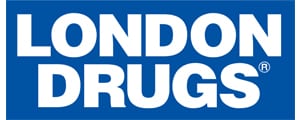Understanding the Most Common Types of Dementia A Comprehensive Guide
Introduction:
Dementia is a widespread condition affecting millions of individuals worldwide. It is a progressive and often debilitating cognitive disorder that impacts memory, thinking, behaviour, and the ability to perform daily tasks. While there are multiple types of dementia, some are more prevalent than others. This article will delve into the most common types of dementia, providing valuable insights into their distinguishing characteristics, potential causes, and management options.
Alzheimer’s Disease:
Alzheimer’s disease is the most common form of dementia, accounting for approximately 60-80% of cases. It primarily affects older adults and gradually impairs memory and cognitive function.
- Progressive memory loss, difficulty with problem-solving, and confusion are common symptoms.
- Amyloid plaques and tau tangles in the brain contribute to the disease’s progression.
- Genetic factors, age, and lifestyle choices can increase the risk of developing Alzheimer’s disease.
Vascular Dementia:
Vascular dementia is the second most prevalent type of dementia, usually caused by reduced blood flow to the brain due to stroke or damaged blood vessels. It commonly occurs alongside other forms of dementia.
- Decline in thinking skills due to impaired blood circulation in the brain
- Risk factors include hypertension, high cholesterol, and heart disease
- Symptoms can vary depending on the areas of the brain affected by reduced blood flow
Lewy Body Dementia:
Lewy body dementia (LBD) is characterized by abnormal protein deposits called Lewy bodies in the brain. It shares specific symptoms with Parkinson’s disease and Alzheimer’s disease, making diagnosis complex.
- Fluctuating alertness, visual hallucinations, and motor symptoms are common.
- Sleep disturbances and cognitive fluctuations can make daily functioning challenging.
- Medications used to manage Parkinson’s symptoms can have adverse effects on individuals with LBD.
Frontotemporal Dementia:
Frontotemporal dementia (FTD) is a group of disorders characterized by the degeneration of nerve cells in the frontal and temporal lobes of the brain. It often affects individuals at a younger age compared to other forms of dementia.
- Changes in behaviour, personality, and language skills are prominent symptoms.
- Subtypes of FTD include behavioural variant FTD and primary progressive aphasia.
- Specific genetic mutations are associated with a higher risk of developing FTD.
Mixed Dementia
refers to the coexistence of two or more types of dementia, often Alzheimer’s disease and vascular dementia. It is estimated that mixed dementia is highly prevalent among older adults.
- Shared symptoms can make it challenging to identify individual types of dementia.
- Manifestation of both Alzheimer’s-related memory impairment and vascular dementia symptoms
- Combinations of different dementias can exacerbate cognitive decline and complicate management strategies.
Parkinson’s Disease Dementia:
Parkinson’s disease, a neurodegenerative disorder, can progress to Parkinson’s disease dementia in some cases. This form of dementia typically develops later in the disease’s course.
- Motor symptoms, such as tremors, stiffness, and bradykinesia, are common in Parkinson’s.
- Cognitive decline, including memory loss and executive dysfunction, may develop over time.
- Medications used to manage Parkinson’s symptoms may alleviate some dementia-related symptoms.
Huntington’s Disease Dementia:
Huntington’s disease is an inherited disorder caused by a defective gene. As the disease progresses, it can lead to the development of cognitive impairments and dementia.
- Involuntary movements, psychiatric symptoms, and cognitive decline are characteristic.
- Genetic testing can help identify individuals at risk of developing Huntington’s disease.
- Supportive care and symptom management are vital aspects of Huntington’s disease dementia treatment.
Wernicke-Korsakoff Syndrome:
Wernicke-Korsakoff syndrome is a form of dementia caused by a deficiency of thiamine (vitamin B1), often related to alcohol abuse or malnutrition. It primarily affects memory and learning abilities.
- Symptoms include confusion, memory loss, and difficulty with coordination
- Alcohol-related brain damage can lead to permanent cognitive impairments
- Timely thiamine supplementation can prevent the progression of the syndrome
Creutzfeldt-Jakob Disease:
Creutzfeldt-Jakob disease (CJD) is a rare and rapidly progressive neurodegenerative disorder caused by prion protein accumulation in the brain.
- Symptoms include rapid mental deterioration, muscle stiffness, and involuntary movements.
- CJD can be inherited, acquired through exposure to infected tissues, or occur sporadically
- There is currently no cure for CJD, and treatment focuses on managing symptoms and providing support.
Normal Pressure Hydrocephalus:
Normal pressure hydrocephalus (NPH) is a condition characterized by an abnormal accumulation of cerebrospinal fluid in the brain’s ventricles, leading to cognitive decline.
- Symptoms include a triad of difficulties with walking, urinary incontinence, and cognitive impairments.
- NPH is often misdiagnosed due to its resemblance to other conditions
- Surgical intervention to drain excess cerebrospinal fluid can alleviate symptoms in some cases
Conclusion:
Understanding the various types of dementia is crucial for accurate diagnosis, appropriate treatment planning, and optimal care for individuals affected. Alzheimer’s disease, vascular dementia, Lewy body dementia, frontotemporal dementia, and mixed dementia are among the most common forms. By recognizing each type’s unique characteristics, causes, and symptoms, healthcare professionals and caregivers can tailor care plans to suit the specific needs of individuals with dementia.
For more information on dementia care or to seek assistance, contact SMPLTEC today.
Our dedicated team is ready to provide guidance and support. Contact us via phone at 1.833.237.4675 ext. 1, email us at support@smpltec.com, or visit our website at www.smpltec.com.
Unravelling the Complexities of Dementia: Empowering Care and Understanding
FAQs
Q: Is there a cure for dementia? A: Currently, there is no cure for dementia. However, early detection and appropriate management strategies can help slow its progression and improve the quality of life for individuals affected by the condition.
Q: Are there any preventive measures for dementia? A: While there is no guaranteed way to prevent dementia, a healthy lifestyle that includes regular exercise, a balanced diet, social engagement, and intellectual stimulation may help reduce the risk.
Q: Can dementia be hereditary? A: Some forms of dementia, such as Alzheimer’s and frontotemporal dementia, have genetic components. However, not all cases of dementia have a hereditary link. Genetic testing and counselling can provide more information about an individual’s risk.
Q: How can I support a loved one with dementia? A: Supporting a loved one with dementia involves providing emotional support, creating a safe and stimulating environment, and ensuring they receive appropriate medical care. Joining support groups and seeking guidance from healthcare professionals can also be beneficial.
Q: Is memory loss always a symptom of dementia? A: Memory loss is a common symptom in many types of dementia, particularly Alzheimer’s disease. However, not all memory problems are indicative of dementia. Other factors, such as stress, depression, or certain medications, can also cause memory difficulties.
Q: Can dementia be managed with medication? A: Medications are available to manage specific symptoms associated with dementia, such as memory loss and cognitive decline. However, it is essential to consult a healthcare professional to determine the most appropriate treatment plan for each individual’s condition.


















